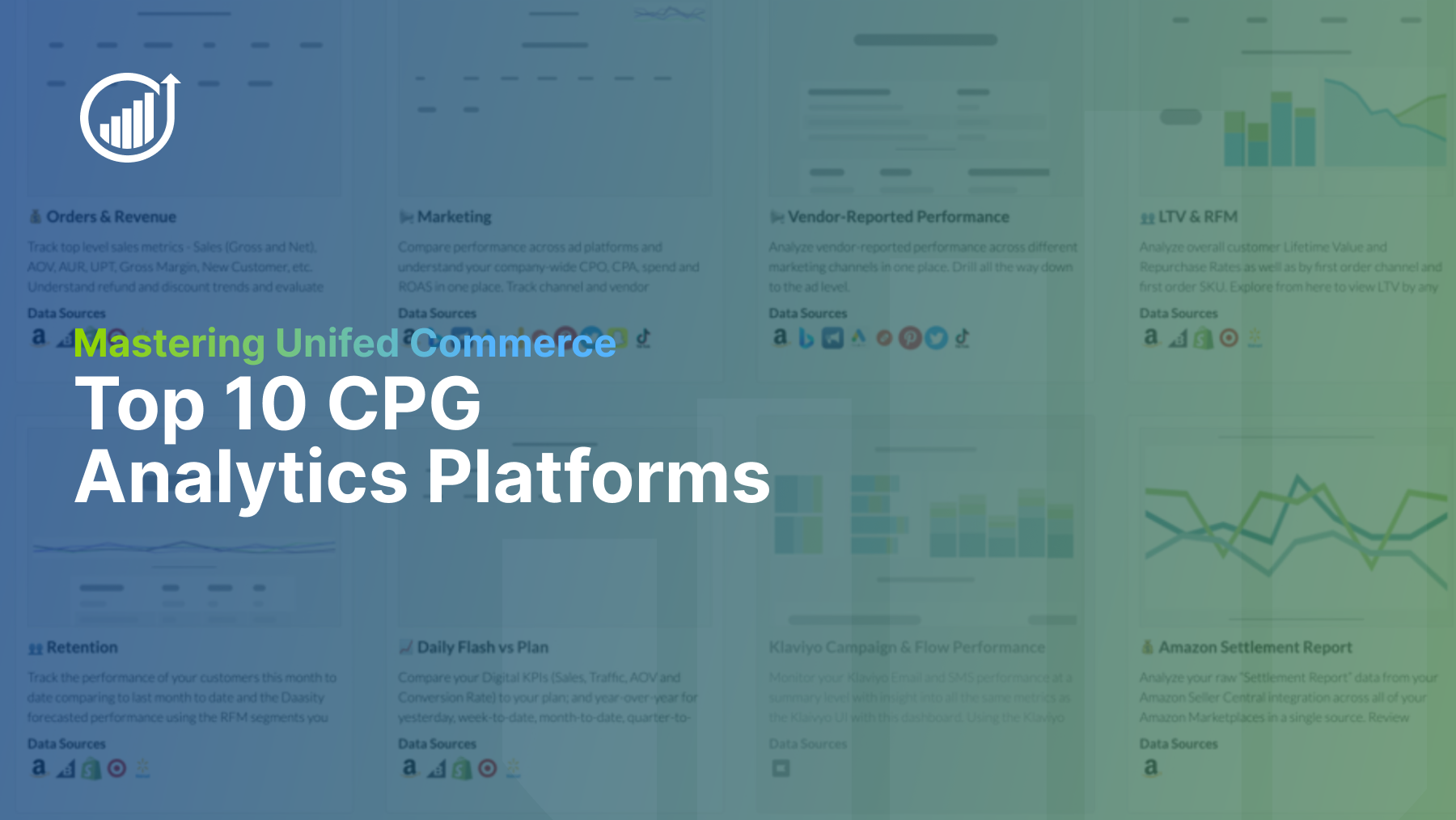Omnichannel Data in eCommerce
“How are sales this month?” This seems like a straightforward, simple-to-answer question, especially with so much data and so many tools at our fingertips. However, if you are an omnichannel retailer, this question probably takes some time to answer.
What does omnichannel mean?
Being an omnichannel retailer means you sell your product or service across multiple sales channels. For example, you might have a DTC eCommerce site, and you may also sell via Amazon or other marketplaces. Some eCommerce brands also have their own brick-and-mortar stores. The advancements in technology and an easy user experience across platforms has made it easy for companies to set up multiple storefronts, and many are using at least two sales channels today.
How to measure omnichannel sales
Measuring omnichannel sales effectively requires a data warehouse that combines all existing sales sources. Data warehouses are typical of large enterprise corporations, but they are not as typical in smaller brands. The reason a data warehouse is required is because each sales channel (e.g., eCommerce store, Amazon, POS system) will have a different way of storing and coding the data. Data can only be combined when the attributes match exactly. But, with the right logic applied to each data source, the data from each source can be transformed to one unified source to provide a holistic sales view.
Why is having an omnichannel sales view so important?
An omnichannel sales view is important to enable better decision-making for both day to day management, a weekly task schedule, and long-term strategies. Looking at each platform in a vacuum or silo can cause companies to miss important trends or make decisions that may not be the best for the overall company.
Let’s explore a few Omnichannel examples
Example 1: Marketing Impact
Let’s face it: consumers don’t do what we want them to. Even in the digital world of tracking, accountability and pixels upon pixels, the directly measurable impact of marketing activities are never the entire story. Running ads on Facebook, for example, might lead a consumer to look up your product on Amazon. Because these platforms are separate, it would be difficult to make a connection. Having all data connected in a data warehouse makes it easier to see connections across platforms and channels.
Example 2: Product Inventory Management
How about looking at product sales holistically? You probably have an inventory management system or warehouse management system (IMS/WMS) that lets you know the general in-stock quantity. Surely someone is reviewing reports to be aware of fast and slow movers, right? RIGHT? Where products are selling (eCommerce, marketplace, retail), for example (and how quickly), can lead you to make different decisions.
Are you running low on a top product in retail? If retail customers are more valuable than Amazon, then you may make a decision to not sell that particular product on Amazon in the short term to preserve inventory for retail customers. However, if you are just looking at a top level in-stock number, then you may end up letting this product sell out and miss out on more valuable customers and profit.
These are just two small examples of the power of an omnichannel view of your business.
Conclusion
A holistic view of your company’s performance can dramatically change how you make decisions to run your business. If creating or enabling a centralized data warehouse seems like an overwhelming or out of reach project—it doesn’t have to be. Daasity’s eCommerce performance analytics platform is purpose-built and completely optimized for DTC eCommerce brands. The platform can create your data warehouse in a matter of days, not months. If you are drowning in spreadsheets, or don’t even know where to start, contact Daasity today.
For more information or a demo, visit us!
About Daasity
Daasity is transforming the way companies access and use their data. It is the first and only company to design a proprietary platform specifically for the direct-to-consumer industry that makes business-critical data accessible and usable for strategic decision-making. The company’s mission is to make business-critical data accessible for all DTC brands. Visit www.Daasity.com or LinkedIn.



-1.png)


